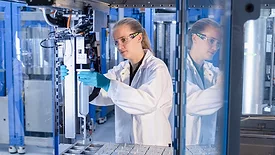Home » Keywords: » digitalization
Items Tagged with 'digitalization'
ARTICLES
AI and machine vision are emerging as the latest technological evolution to help address inherent flaws in traditional automated dispensing.
Read More
Using AI for Chemical Risk Assessment
As the world faces a surge of new synthetic chemicals and complex toxicity patterns, scientists use AI to assess environmental and health risks.
January 15, 2026
AI, Machine Learning, and 3D Vision Will Revolutionize Dispensing
Artificial intelligence, machine learning, and 3D computer vision technology will revolutionize how the dispensing of adhesives and sealants is performed.
January 8, 2026
How AI and Biobased Chemistry Are Helping Transform Industrial Adhesives
ASI interviewed Michael Lefenfeld, President & CEO of Hexion, to discuss the company's sustainability strategy and vision for the future of sustainable chemistry.
December 17, 2025
From the Editor
The Digital Dilemma: Balancing AI's Promise with Human Productivity
January 30, 2025
Keep the info flowing with our newsletters!
Get the latest industry updates tailored your way.
JOIN TODAY!Copyright ©2026. All Rights Reserved BNP Media.
Design, CMS, Hosting & Web Development :: ePublishing






.webp?height=168&t=1704834340&width=275)




